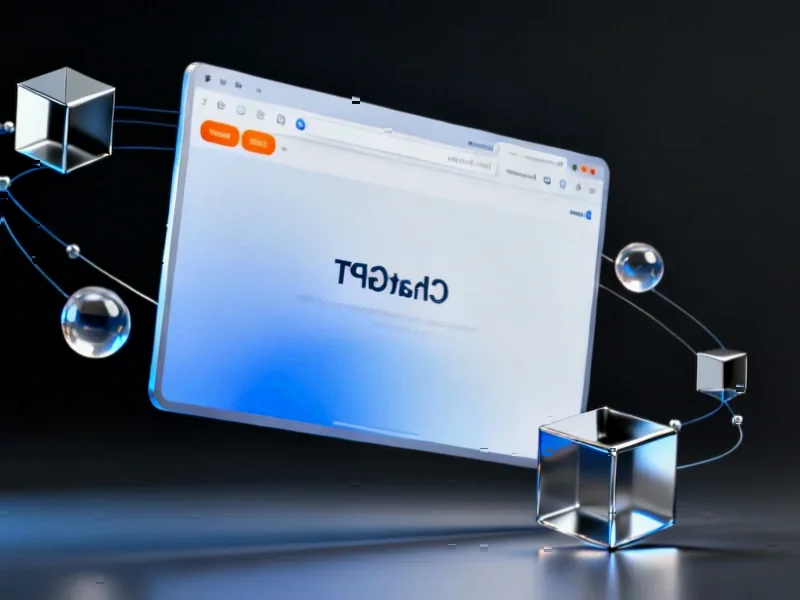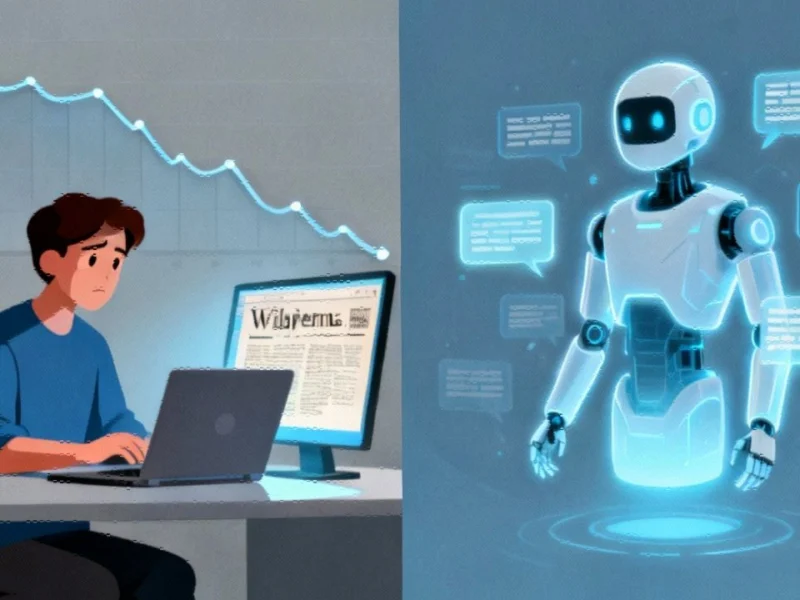The Dawn of AI-First Web Browsing
OpenAI has officially unveiled ChatGPT Atlas, marking the organization’s strategic entry into the competitive web browser market. This AI-native browser represents a significant shift from traditional browsing experiences, integrating advanced language models directly into the core browsing functionality. Unlike conventional browsers that treat AI as an add-on feature, Atlas positions artificial intelligence as the fundamental architecture for web interaction, search, and content discovery.
Table of Contents
Global Rollout and Platform Accessibility
The initial release of ChatGPT Atlas is now available worldwide for macOS users, with comprehensive cross-platform support scheduled for upcoming releases. OpenAI has confirmed that Windows, iOS, and Android versions are in active development, ensuring broad accessibility across the digital ecosystem. This phased approach allows the company to refine the user experience while gathering valuable feedback from early adopters before expanding to larger user bases.
The timing of Atlas’s launch is particularly strategic, coming several months after industry speculation began circulating about OpenAI’s browser ambitions. The formal announcement, delivered via livestream by CEO Sam Altman, underscores the company’s commitment to transparent communication with its growing user community and the broader technology sector.
Transforming Search and Information Retrieval
ChatGPT Atlas fundamentally reimagines how users interact with web content. Rather than presenting traditional search results, the browser leverages OpenAI’s sophisticated language models to understand user intent and deliver contextual, synthesized information. This approach addresses the growing trend of users turning to AI assistants for complex queries that require integration of multiple information sources., according to expert analysis
“We’re witnessing a paradigm shift in how people seek information online,” explained a technology analyst familiar with the launch. “Traditional search engines excel at finding specific pages, but Atlas aims to provide direct answers and insights by understanding the nuance behind each query.”
Competitive Landscape and Market Positioning
The browser market has long been dominated by Google Chrome, which has recently incorporated AI features through its Gemini models. However, Atlas enters the arena with a distinct advantage: native integration of OpenAI’s proven language technology rather than retrofitted AI capabilities.
Other competitors have also recognized the potential of AI-enhanced browsing. Perplexity made early strides with its AI-powered search engine, while companies like Opera have repositioned their browsers around artificial intelligence features. The emergence of specialized browsers like Comet demonstrates the growing market demand for intelligent web navigation tools that go beyond traditional browsing experiences.
Technical Architecture and User Experience
ChatGPT Atlas incorporates several groundbreaking features that distinguish it from existing browsers:, according to technological advances
- Conversational Navigation: Users can interact with the browser using natural language commands rather than traditional URLs or search terms
- Contextual Understanding: The browser maintains conversation context across browsing sessions, creating a continuous, personalized experience
- Content Synthesis: Instead of simply displaying web pages, Atlas can analyze multiple sources and present consolidated information
- Proactive Assistance: The browser anticipates user needs based on browsing patterns and query history
Industry Implications and Future Development
The introduction of ChatGPT Atlas signals a broader transformation in how technology companies approach web browsing. As artificial intelligence becomes increasingly sophisticated, the distinction between search engines, browsers, and AI assistants continues to blur. This convergence creates new opportunities for innovation while challenging established market dynamics.
OpenAI’s entry into the browser market with Atlas represents more than just another product launch—it heralds a new era of intelligent web interaction. As the company continues to develop and refine the platform, the broader implications for digital content consumption, information retrieval, and online productivity could reshape the fundamental ways we engage with the digital world., as comprehensive coverage
Industry observers will be closely monitoring user adoption rates and engagement metrics, particularly as established players accelerate their own AI initiatives in response to this new competitive threat. The coming months will reveal whether ChatGPT Atlas can translate its technological innovation into sustainable market presence.
Related Articles You May Find Interesting
- OpenAI’s ChatGPT Atlas Browser Redefines Web Navigation with AI-Powered Chat Int
- OpenAI Launches ChatGPT Atlas Browser to Challenge Google’s Dominance
- OpenAI Enters Browser Wars with ChatGPT Atlas, Challenging Google’s Dominance
- How Software Innovations Are Accelerating AI Performance Beyond Hardware Limitat
- Machine Learning and Voltage-Matrix Nanopore Method Enable Precise Protein Profi
References & Further Reading
This article draws from multiple authoritative sources. For more information, please consult:
- https://www.google.com/
- https://www.perplexity.ai/
- https://www.perplexity.ai/comet
- https://www.opera.com/
This article aggregates information from publicly available sources. All trademarks and copyrights belong to their respective owners.
Note: Featured image is for illustrative purposes only and does not represent any specific product, service, or entity mentioned in this article.



